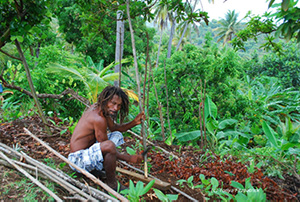Road trip tips: Spend less and make the most out of your journey on wheels

RV camper
Posted October 30, 2020
As airborne travel is still largely discouraged due to the pandemic, many of us have taken to exploring our backyards by wheels and have fallen in love with the convenience and excitement of road tripping.
While much of the adventure comes from the journey itself, there are plenty of ways to make your road trip as seamless and cost-effective as possible, allowing you to bypass the struggles and soak in the sights.
We have compiled a collection of tips from seasoned travellers who have taken on the world by caravan or RV and are sharing their advice and resources for road trippers.
Buckle up and enjoy the ride!
********
Last year my partner and I bought a Sprinter van from a dealership in Maryland and drove it cross-country back to our home in Las Vegas. It was our first road trip in a campervan. It took us three weeks, but it seemed like two days… Here are our tips to save money without compromising the journey:
- Get a mosquito net!
- Make sure you have LOTS of audiobooks.
- Have a good cooler and all the cooking supplies you like.
- Use the app iOverlander to find campgrounds or secluded places to park (staying at Walmart will compromise the journey…).
- For showers, either get a one-day pass for a gym or pay for a campground every once in a while. Most states have city campgrounds that are fairly cheap and have free Wi-Fi and showers.
- Dolev Schreiber, founder and CEO of DetourOn

Boondockers Welcome is a resource of RVers helping RVers. Hosts (private property owners) invite guests to stay for free on their land. It’s a great way to meet other RVers and safely travel during the pandemic as it is easy to practice social distancing on the property. As campgrounds are filling up quickly, Boondockers offers an alternate solution for RVers. It is especially great for first-time RVers as many of the hosts are RVers themselves so they can offer lots of advice for newbies. Plus, you can really get to know the area you are traveling as you will be staying with a local. And, at $50 per year it is extremely cost effective!
- Carrie Price, Boondockers Welcome
Download an app like Gas Buddy or GasGuru to find the cheapest places to buy gas along your route. If you are following an itinerary, it will be easy to pre-plan your fill ups. These apps will still come in handy if you’re following your heart rather than an itinerary.
There are other helpful apps to plan your trip or make life on the road less stressful. RoadTrippers and Pebblar are two good road trip planning apps. I also recommend downloading offline maps for areas you may run out of service. There are several apps that provide this information, but I use MAPS.ME and I’ve found their maps to be very accurate.
- Kailey Portsmouth, freelance travel writer and photographer at Kailey Portsmouth Photography

Generally speaking, planning is essential if you want to save money while traveling cross-country.
First of all, think about where you’ll be sleeping at night. There are many places where you can camp for free. For instance, the U.S. Bureau of Land Management (BLM), which oversees wilderness areas in the U.S. (as opposed to National Forests and National Parks) has an online database you can search for places to camp. It mostly covers places in the Western U.S. states as that is where most of the BLM managed lands are found.
As an example, do a search for camping in California, and you’ll find 196 results, many of which are free camping areas.
National Parks and National Forests also offer many free camping options, if you know where to look for them. They will often call these “primitive campsites” or “backcountry camping.” Make sure your car or RV is up to handling the roads in these areas, as they can sometimes be a bit rough. If you aren’t driving an RV equipped with a toilet, look for sites that have at least “vault toilets” so you’ll have easy access to the bathroom.
In addition to the benefit of being free, these campgrounds also tend to be much less crowded, which is a real advantage during the COVID-19 pandemic.
Another big place to save money is food and drink. Try to cook for yourself as much as possible. If you’re traveling in an RV, stock your fridge. If you don’t have a fridge, get a big cooler with thick walls, like a Yeti, that will keep your perishable items cool for long periods. Make sure to leave enough time in your schedule every day for preparing meals, including lunches you can carry with you on your outings.
The last tip is to look for activities that don’t cost a lot (or any) money. If you are outdoorsy, there is no shortage of things to see and do. Hiking and biking are almost always free — park entrance passes aside. If you’ll be spending a lot of time in national parks or a specific state, look into all-access passes so you don’t get nickeled and dimed to death by park fees. California, for instance, offers a statewide park pass that will save you a lot of money if you’ll be visiting a lot of the state’s parks and beaches. The U.S. Park service offers an annual national parks pass that costs $80 and will save you a ton of money if you’ll be visiting more than one park or a single park multiple times. Seniors get a steep discount on these passes.
- Chris Emery, editor of Ordealist.com

- The cost of living in each country throughout Europe varies. Plan your refuelling locations ahead of time, and fill up in cheaper countries. Diesel prices tend to be cheaper closer to cities, and more expensive in remoter areas. Apps such as 123fuel are useful for providing you with the latest prices, as well as locations for stations.
- For RV travelers, staying at ‘Aires’ in Europe will save you a considerable amount of money versus booking at a campsite. An aire is a public parking space, or occasionally private land.
- If you would rather the experience and wider facilities of a campsite, check on their website when the low season is — this is often either side of school and college breaks. They will also be less crowded!
- Buy a camping discount card such as ACSI who offer discounts of up to 60% on over 3,000 campsites across 21 countries in Europe.
- Fill up your water when it is free, as well as empty waste water. You will often find service points at aires, as well as motorway service areas, and sometimes supermarket car parks.
- Emma Green, Caravan Sleeps https://caravansleeps.com
A big money-saving tip is to use the free roads. Google maps will usually show you options with toll roads and free roads. In many countries in Europe, like Spain and France, the tolls really do add up — especially for larger vehicles like RVs and campervans. Travelers coming from the US are often surprised to see how much the tolls are on this side of the Atlantic Ocean, as they tend to be much less expensive in the US.
The same goes for gas (petrol). Although it might look less expensive at first sight, since prices are listed by the liter and not by the gallon, generally petrol in Europe is more costly than that in the US.
Most European countries are strict about speed limits. Spain for example has radar cameras on many of the major roads, and travelers are often surprised to receive speeding tickets months after their trip. Pay close attention to the speed limit, and to avoid costly tickets, don’t go over it, even by just a few kilometers per hour.
Finally, to save on tolls and petrol, the idea of regional road trips is very popular. For example, travelers considering taking a road trip in Spain might want to stick to a specific region, depending on how much time they have. A popular option is through Andalucía, Spain’s popular southern region. While there are many popular cities here such as Seville and Granada, access to your own vehicle really allows you to get off the beaten path and explore some of the smaller towns. And in the summer months, an RV or campervan trip through coastal northern Spain (Galicia, Asturias, Cantabria, and Basque Country) is very popular with travelers from abroad. These areas are not well connected by public transportation, and having your own wheels gives you the freedom to explore.
Just make sure to park your vehicle in the parking area on the outskirts of the center of these places — navigating these narrow roads in a car is hard enough, and is much more of a challenge in an RV or a campervan.
– Karen Rosenblum, founder of Spain Less Traveled

My #1 road trip travel tip is to download a map app that works offline. The HERE WeGo app will give you turn-by-turn directions and re-calibrate your route even if you lose signal or run out of data. It has offline maps for more than 100 countries! You can download an offline version of Google Maps for a specific area as well.
– Lauren Melnick, Wanderlust Movement
One easy and applicable road trip tip for almost everyone is to EAT LOCAL. Visit farmer’s markets, craft breweries, food trucks, wineries — socially distancing of course. At the very least, shop at grocery stores to save money. On my latest road trip, I stopped at Aldi’s a few times, getting a meal plus extra snacks (usually veggies) for under $5.
- Charles McCool, McCool Travel

********
We hope these tips will make your overland travels as smooth as possible. Thank you to all of our experts who contributed their advice and happy road tripping!
Join the community!

Join our community to receive special updates (we keep your private info locked.)




